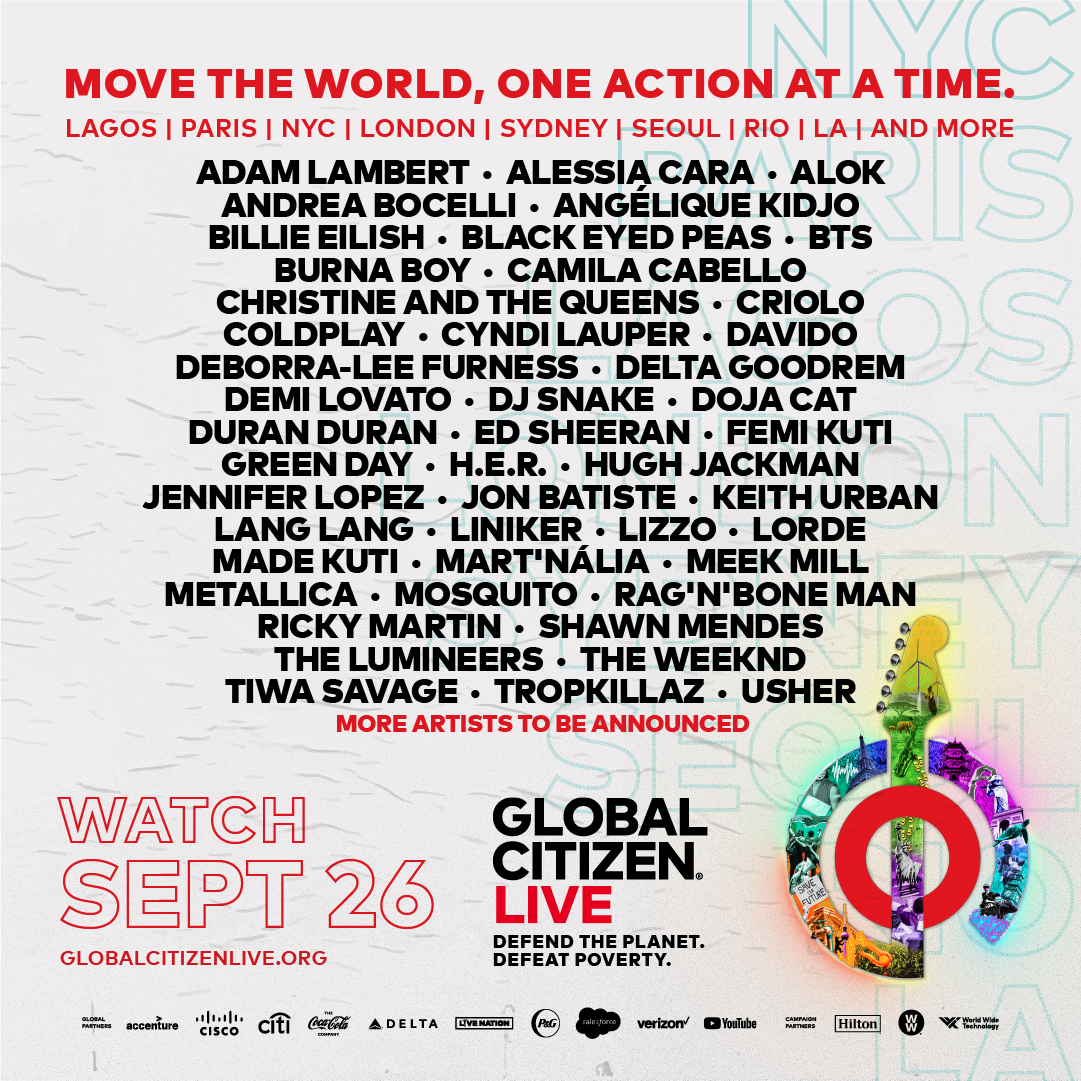Tiwa Savage is often recognised as the Queen of Afrobeats, and what a worthy queen she is. Her reign is rhythmic and untraditional, her crown is unapologetically African, and her royal decrees are solidly empowering. Rather than bowing down before her, Savage is the queen who wants you to stand beside her, especially if you’re a Black girl who has her life ahead of her.
We cannot wait to see Savage rock Global Citizen Live on Sept. 25, joining Davido, Femi Kuti, and Made Kuti from the Lagos arm of our once-in-a-generation global event to defend the planet and defeat poverty.
Global Citizens can take action as part of the campaign to help push world leaders to act on some of the world’s biggest issues — including vaccine equity, famine, and climate change — in the lead up to the 24-hour global broadcast that’ll include performances from artists across six continents.
Savage has been in the music game for a long time, having started by singing backup vocals for the likes of George Michael, Mary J. Blige, and Whitney Houston, just to name a few. Kicking off her solo career with a debut album Once Upon a Time in 2013, Savage has shown no signs of slowing down, producing hit after hit, with a wealth of music under her belt that serves as an ode to her home continent, and the young Black girls that hail from it.
Last year she dropped her fourth studio album, Celia, an homage to her mother and a body of music that seeks to shine a light on Black girls everywhere.
“When I was creating it, I was thinking about celebrating women — strong women, women who are powerful, who are vulnerable, who are sexy, bossy, or whatever,” she told Complex. “I wanted a name for the album that could embody all that and I could only just think of my mum.”
In the same interview, Savage goes into the difficulty of what it means to invest in self-love as a Black woman or girl, especially in a world that has refused to recognise your value and your beauty for centuries, and still amplifies one set standard of beauty.
“It’s hard being a woman and then being a Black woman, it’s like you have to be even stronger,” she said. “I think it’s extremely important to value yourself, but then I also understand it’s not that easy in the society we live in, where you’re influenced by magazine covers, Instagram, and the world seems to celebrate women that look the opposite from what we look like.”
Having such a large and influential platform, the Afrobeats star has continuously used it to be a strong yet realistic representation of what it means to be a successful Black African woman in a creative industry. It is not lost on her the power that Westernised representations in media have on young girls and women, having experienced it herself.
The self-proclaimed “chocolate girl” did not always love the skin she was born in, explaining to Allure that she remains aware of the impact that European beauty standards have on women of colour, especially those from formerly colonised countries. She, similar to many dark skinned girls, has had to grapple with the self-consciousness that comes with colourism from a young age.
“I actually did try to bleach my skin when I was about, I think, 14, 15,” she recalls. “My mom, she was cleaning my room and saw the cream that I used to mix with lemons. She wasn’t even angry. It was her disappointment. So I stopped, but I was always insecure about being dark.”
She added: “…as time went on, I started seeing how powerful my platform was and how mothers would say, ‘My little girl really looks up to you.’”
Today Savage adores every inch of her skin and she loves to embrace her natural look, explaining that she never edits blemishes from her images. She goes on to tell Complex that Beyoncé’s “Brown Skin Girl” is a song that she joyously sings in public.
“I feel like women who look the opposite of what we look like seem to be celebrated more, and it’s not just in our community — it’s all around the world; this one-track idea of what a beautiful woman is,” she said. “That’s why I want to try and encourage girls that are my complexion, and try to be part of the people that change the narrative to say that Black women are beautiful!”
A proud Nigerian native, Savage has also made sure to use her influential voice to advocate for her country’s needs. Last year when Nigeria’s youth rallied together in a call to end police brutality and violence in the country, protesting for the disbandment of the Special Anti-Robbery Squad in the #EndSARS movement, Savage made certain to add her voice to the call.
“End Sars is not even the tip of the iceberg. Police reform, health care, infrastructure, fight against gender-based violence, the list is plenty,” the artist said in a tweet. “We will hold these leaders accountable. They have played with our lives for too long.”
With a determination to empower Black women and girls, and a recognition of her country’s needs for development and change, Savage makes a great addition to the Global Citizen Live lineup. She not only has a fresh set of music that we cannot wait to jam along to, but she has so much to stand for.
Find out more about Global Citizen Live and how you can join Tiwa Savage in taking action to defeat poverty and defend the planet here.
You can join the Global Citizen Live campaign to defeat poverty and defend the planet by taking action here, and become part of a movement powered by citizens around the world who are taking action together with governments, corporations, and philanthropists to make change.
